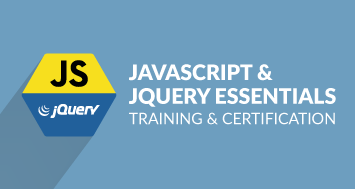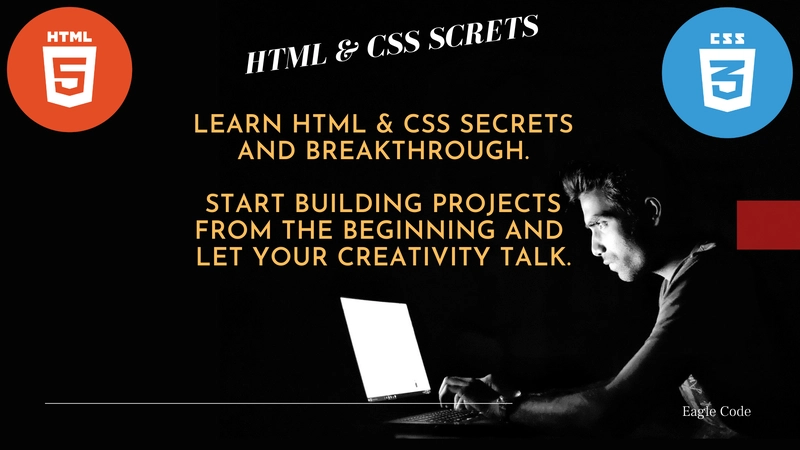JavaScript is a programming language that allows web developers to create interactive websites. If you want to become a web developer, learning JavaScript is essential.
It is a very versatile language. It can be used to build desktop applications, mobile apps, games, and even embedded systems. In addition, it is also widely supported across browsers and operating systems.
JavaScript has evolved over time, and now supports several new features such as object-oriented programming, event handling, data types, and dynamic typing. This makes it easier to develop applications using the language.
However, the most popular question among beginners and people who want to start building something nice like a website or an app is : How long does it take to learn JavaScript?
In this article we will understand first what “Learn” means as many people get “learning” confused with “mastering“, and then we will break down how much time exactly is needed to master JavaScript and start doing something with it.
1)- Learning
Learning means gaining or acquiring knowledge of something after studying it or being taught to you.
This means when you learn something, you become knowledgeable in this subject and have a basic understanding of what this subject is.
But in no case learning means mastering.
Same thing for JavaScript. When you ask the question: How long does it take to learn JavaScript? What you’re asking actually is how long you need to have a basic understanding of JavaScript concepts and start understanding how the language works.
And the answer to this question is it depends.
It depends on what you would ask?
Well, it depends on if you’re a self-taught person – Like me 😃 – Or if you’re enrolled in some sort of program or Bootcamp or university…
But either way, stick around to see exactly the difference between these 2 methods and how much time you will need depending on which situation you’re in.
a)- Self-taught way
If you’re learning JavaScript all by yourself, then this might take you a little bit longer than expected.
Usually self-taught people need around 1 year and half to 2 years to grasp the basics of JavaScript.
And when I say “grasp the basics“, I’m not talking about peeking or skimming the course or the concepts quickly while you’re watching TV and talking to your friend at the same time on the phone while having an eye on the course and the other eye on the computer.
When I say “grasp the basics” I mean learn JavaScript enough to start feeling comfortable using it because you stuck with it enough to understand the concepts at a deeper level.
Because to achieve this level of comfort, knowing how a for loop works is not enough. Instead, you should know how a for loop works, and how nested loops work, and how to use a for loop with an object to create various instances of an Object, and if you use a for loop inside a function what will happen, and if you use a function inside a for loop what will happen and so on and so on…
So you see, just for one concept, which is for loops, there is a lot to understand.
Of course these are not fixed numbers, we’re all different and for some they might need more than 1 year and half and for others less. But this is the average duration that it takes.
For me personally, I started feeling comfortable using JavaScript around 2 years and half. It was a long way, and I had to put in a tremendous amount of effort and hard work.
Also when I’m talking about the “basics“, I really mean the “basics“, like for loops, functions, objects, arrays… I’m not even talking about advanced concepts like how to make an AI, or how to make a blockchain….Because those, once you understand the “basics”, they become very easy to work on.
But why is it hard to learn JavaScript by yourself?
Simply because you have to figure out everything all alone.
You have to check hundreds of websites, watch thousands of videos, select the right courses for you by yourself, make your own mistakes, google them hoping you’ll find someone who already had the same problem and found the solution, join forums so that you can ask questions there and see if there is anyone ready to help, understand the code or others code…
That’s pretty tedious and can quickly become overwhelming and discouraging because you feel lonely and there is nobody you can turn to for help.
Not to mention that nowadays, there are millions of resources out here, so when you are a beginner and trying to figure out things by yourself, you get lost quickly, because everyone says that this video is the best, or this course is the best, or this website is the best. So you don’t know which one really to trust.
b)- Guided way
A guided way to learn JavaScript generally involves a tutor, a coach, a teacher, or paid bootcamps…
Using this method speeds up the learning process tremendously and has many advantages. But it requires financial investment
But don’t let that stop you because learning JavaScript pays substantial dividends that make the effort more than worth it…
Using this method you will need between 6 to 9 months to learn deeply the concepts of JavaScript as the courses and training you will enroll in usually have this duration length.
There are some platforms you can join that have many JavaScript, HTML, and CSS courses, and you get a certificate by the end of the training period.
One of them is eudureka! platform. I like this platform because it has courses not only about HTML, CSS, and JS but also about Cloud computing, cyber security, BI…So if you’re interested in any other course you can take it as well. All it requires is an enrollment to your favorite course and you get access to it with the certificate at the end.
2)- Mastering
On the other hand, we have mastering.
Mastering means knowing the subject sufficiently that not only you feel comfortable using it or talking about it, but it becomes a second nature to you.
Mastering JavaScript does not mean you don’t make mistakes anymore, but rather you are able now to build real websites and apps because not only you understood well the tips and tricks, but you are at a stage where you can understand other people’s code and spot errors, pick up new tricks or lessons quickly, help others and why not tutoring them and discuss anything about JavaScript with ease.
This phase does not have a timeframe because simply JavaScript is so wide that even if by any chance you master all of it, a new version of JS will change it all as there are always updates and new libraries and frameworks.
However, you can master a part of JavaScript, and that is when you know exactly what you want to do and start working on it from the beginning.
For example, if you know that you love games, and you want to build a career as a game developer, then you know which part of JavaScript you’ll need to learn and focus on the most. And for those who are fond of Blockchain, for sure they will not focus on the same techniques and libraries as a game developer, they will have to concentrate on other types of libraries, but that is what will make them masters in their area, which is Blockchain.
And to be a master in an area or a part of JavaScript, the minimum duration is one year depending on which area you chose to focus on. But still, the truth is, when it comes to mastering, the process is a never-ending with JavaScript.
3)- What should I know before starting to learn JavaScript?
To learn JavaScript, you don't have to know any other programming language, but it would be better if you know HTML and CSS first.
JavaScript is used to create dynamic websites, so it makes sense to have a basic familiarity with other web page building blocks like HTML and CSS.
Also, don't forget that you will be manipulating DOM elements with JavaScript, and DOM elements simply mean HTML elements.
4)- How Much Time You Have to Dedicate to Learning JS?
It’s no secret that the more time you dedicate to learning, the quicker you’ll be able to pick up the skills needed to code with JavaScript.
Learning how to program requires dedication. You must put in the time to practice and develop your coding skills. However, if you do not take advantage of a structured course, you may find yourself struggling to keep pace with others who are better versed in JavaScript. A structured course provides a curriculum that slowly builds upon your knowledge. By enrolling in a course, you begin with basic concepts and move through them one step at a time. Instructors also help you out when you run into trouble. They can offer guidance and assistance so that you can master the material.
Read More
How to Start Coding in HTML, CSS, and JS: The Ultimate Guide for Beginners
How to make money as a web developer?(7 income sources)
Fetch API: Send data from front-end to back-end











Top comments (0)